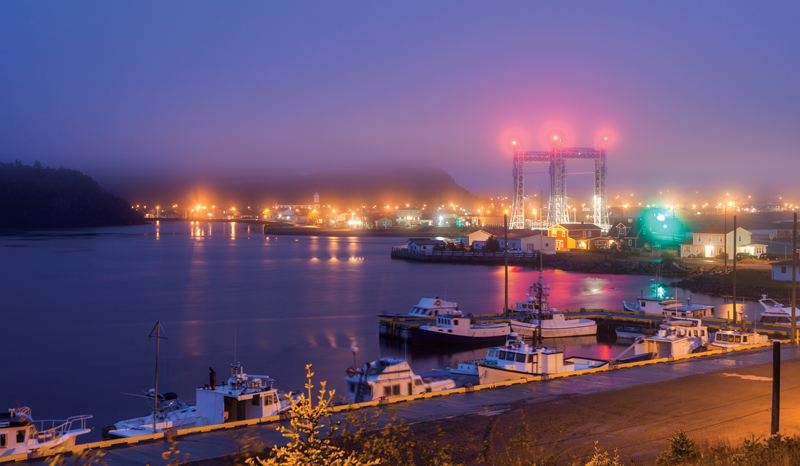Account Login
Don't have an account? Create One

There’s a wave of economic optimism surging up Placentia Bay, sweeping ashore in the town of Placentia and the Port of Argentia. It’s a rising tide of business and industrial activity that, figuratively speaking, appears poised to lift all boats in the region. This is no overnight phenomenon. The area has been building toward this high-water mark for decades—centuries, even—and it’s difficult to grasp the present without acknowledging the past.Placentia was settled in the 1600s, when the Old World was competing to gain a foothold in the new. The Spanish Basques were believed to be the first to shelter there, followed by Portuguese, French, Normans and English fishers. The old town sits on low lying land, with the open Atlantic to the west and two massive inlets, the Northeast and Southeast Arms, on its eastern side. A narrow channel feeds these inlets, resulting in tidal surges that are a wonder to observe.
The town might have continued as a picturesque fishing community with tourism on the side, like so many Atlantic Canadian towns, but world history had other plans. With the outbreak of World War II, the American military moved in to establish Naval Station Argentia, on a large peninsula with sheltered harbour just three km north of Placentia.
Little Known Fact
Land for the Argentia naval base was expropriated, forcing the relocation of more than 400 families.
The Americans worked fast, constructing port facilities, headquarters, lodging, recreation halls, a hospital, three 5,000-foot landing strips, and more, opening in July 1941. They also dredged much of the harbour, to allow sufficient draft for massive warships. In August 1941, U.S. President Harry Truman and British Prime Minister Winston Churchill met on board the USS Augusta, which was anchored just outside the port. Together they signed the Atlantic Charter, which outlined a common post-war vision for world order.
Continue reading this story: click below to login/subscribe
Login or SubscribeComment policy
Comments are moderated to ensure thoughtful and respectful conversations. First and last names will appear with each submission; anonymous comments and pseudonyms will not be permitted.
By submitting a comment, you accept that Atlantic Business Magazine has the right to reproduce and publish that comment in whole or in part, in any manner it chooses. Publication of a comment does not constitute endorsement of that comment. We reserve the right to close comments at any time.
Cancel
Notifications